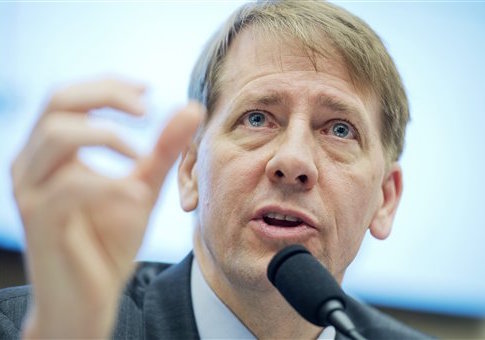One in four of all black, Asian, and female employees surveyed at the Consumer Financial Protection Bureau reported that they had been victims of discrimination, according to a Government Accountability Office report.
The bureau, which was created by the Dodd-Frank Wall Street Reform Act, exists to ensure that banks, lenders, and other financial companies treat Americans fairly.
The audit of the agency was conducted after a House Financial Services Committee investigation into disparities in employees’ performance ratings by race, age, and office location, during which employees came forward and testified to Congress about allegations of unfair treatment by agency managers and discrimination.
"GAO’s survey found heightened concerns related to fair treatment, trust that employees can raise concerns without fear of reprisal, confidence in complaint processes, and other matters," the report states.
The report found that 27 percent of black respondents said they had personally experienced discrimination, along with 25 percent of Asian respondents, 25 percent of female respondents, and 22 percent of respondents who did not identify their race.
Only 12 percent of white respondents said they were discriminated against, and 11 percent of male respondents.
The audit also found that 9 percent of employees reported they had personally experienced retaliation by a supervisor, and another 10 percent said they observed retaliation against another employee.
"Of the survey respondents who reported that they believed they had experienced discrimination, the most commonly reported bases for discrimination were race or ethnicity (47 percent), gender (47 percent) and age (41 percent)," the report explains.
Many believe a culture of accountability does not exist within the agency. "Bureau-wide, over a third of employees who responded to our survey disagreed that a culture of accountability exists in which all employees at all levels are held accountable for their actions," the report explains.
Additionally, one in three employees disagreed with the statement that success at the agency is based more on personal connections to managers or favoritism than merit. An even higher percentage of black respondents, 41 percent, and female respondents, 37 percent, agreed with that sentiment.
Rep. Jeb Hensarling (R., Texas), who chairs the House Financial Services Committee, which conducted an investigation into allegations of discrimination, says the director of the agency Richard Cordray is responsible for fixing these problems.
"Only one man has the power to fix this immediately, and that’s Richard Cordray," said Hensarling. "For at least three years, Mr. Cordray has been presented time and again with evidence that CFPB managers discriminate and retaliate against his employees—from a report the CFPB commissioned in 2013, from whistleblowers, from Congress, from the Federal Reserve’s Inspector General, and now from the Government Accountability Office."
"There is an alarming lack of accountability at the CFPB," he said. "This has got to change."
"We are proud of our progress in building an effective and supportive organizational culture at the Bureau, and we also recognize that maintaining a diverse, inclusive, fair, and efficient culture requires enduring commitment," said Samuel Gilford, a spokesman at the agency. "Outside perspectives and recommendations, such as those GAO provides in its report, offer valuable insight and opportunities to further enhance our organizational culture and personnel management programs and practices. In that spirit, we accept both of GAO's recommendations."
Update 11:10 A.M., Wednesday, June 22: An earlier version of this post did not make it sufficiently clear that the GAO's report was based on a partial survey of CFPB employees. Not every employee participated in the study.
